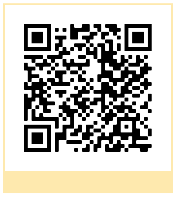How to Further Queer Education at Lakeside

by Zane R. ’24 and Eva T. ’24 with input from GLOW Leadership
It’s difficult to overstate the importance of queer education. Panelists at GLOW’s Week of Listening Assembly held a similar conclusion after voicing their shared lack of exposure to queer subject-matter until college or beyond. They spoke about how this lack of queerness in their education made them insecure in themselves and their identities –– circumstances created by a lack of representation and role models to look to in their curriculums. Thankfully, there has been a large growth in education on queer subjects and lessons incorporating queer experiences, people, and history are becoming more prevalent at the high school level, including at Lakeside. Yet, we believe queer education deserves a larger role on this campus and a greater influence on our studies.
Before we begin, we want to make clear what we mean by “queer education.” While the word “queer” has historically been used to marginalize LGBTQ+ people, more recently many in the community have reclaimed the word and now use it as an umbrella term to refer to LGBTQ+-identifying people. Our definition for queer education is an inclusive curriculum that has gender and sexuality-affirming subject matter. It’s worth mentioning that queer education is not only important for queer people, as queer education allows everyone to further understand and empathize with the experiences of people within the queer community. To be an ally, it is imperative to be informed.
This year, GLOW has prioritized expanding queer education at Lakeside. For example, we’ve had the pleasure of meeting with the Wellness Department on multiple occasions to discuss the inclusivity of their sexual education curriculum. Currently, we are working with the English department to recommend international novels with queer themes to be included in their English 10 curriculum. Finally, we hosted Week of Listening in April, where we encouraged discussions around LGBTQ+ topics (at assembly and within classrooms), displayed posters about queer celebrities, and showcased examples of queer media in the Student Center.
A first step for expanding queer education at Lakeside is working with various departments. For instance, the History curriculum is being redesigned to have a stronger focus on diversity, and has added a new queer history course as of this year. This is extremely exciting — the Queer United States course promises to “explore what it means to be ‘queer’ in a broad sense, including intersections with other anti-oppression movements.” We also hope to work with the History department in the future on how to include more queer education in general History classes. Even though the math and science curricula don’t present as many obvious opportunities to incorporate queer education, it is still important to highlight the roles of queer mathematicians and scientists, as we’ve seen done in some Physics classrooms through a weekly display that highlights queer scientists and scientists of color alike. There are also several resources we’ve created, like the comprehensive guide to LGBTQ+ terms, that can be used both for general and specific answers to any questions about queer identities. We’re especially proud of this guide because it is factual, in-depth, and frequently updated to reflect shifts in terminology, and it has already seen use in English classrooms! If you’d like to check it out and give it a read, scan the QR code.
Sadly, there is also one area in which queer education at Lakeside is declining: the Queer Literature course will be absent from the curriculum during the 2022-23 school year because of a lack of sign-ups. This was an actualization of news which had been brought to the attention of GLOW just a few months before by Upper School English Teacher Lindsay Aegeter. This course, important for many queer-identifying people at Lakeside, is as a source of positive representation and has been said to be worthwhile for anyone, including non-queer students, by a wide array of alums. The course description says that the literature of the class offers a way for students to “[reveal] the lives of people, places, and times totally different from our own and [reflect] our own identities and experiences.”
Queer Literature has historically suffered relatively low sign-ups, but the numbers fell so critically low this year that the very continuation of the course is in danger. According to Academic Dean Hans de Grys, only five people listed Queer Lit. as their first choice, and three people listed it as their second. For the class to happen, it would need 10-12 first-choice selections and several more second-choice selections. Given its importance, the administration did still discuss running the course despite the lack of sign-ups, but ultimately they “made the difficult decision” not to run Queer Lit.
If you’re at all interested and have the space in your schedule, we highly recommend signing up for Queer Lit. for the 2023-24 school year—by doing so, you’re not just giving yourself the opportunity to read and analyze some fantastic works, but you’re also helping to maintain the longevity of this pillar of Lakeside’s queer education. We need students of diverse identities to take this class so that people (especially those who are questioning their identity) can take the class without feeling like they’re being “outed” as queer. This class is for everyone. You can support queer education in other ways; for example, by continuing to have discussions on queer subjects both in and out of class.
If you have other ideas for how to support queer education at Lakeside, you can get in touch with us by emailing GLOWLeadership@lakesideschool.org. Although Pride month is limited to June, learning that highlights queer identities and experiences should persist outside of these remaining weeks!
